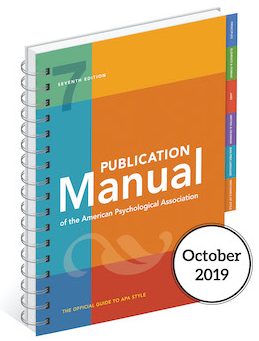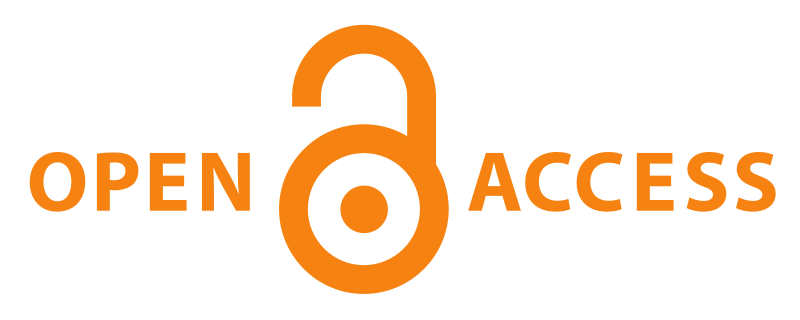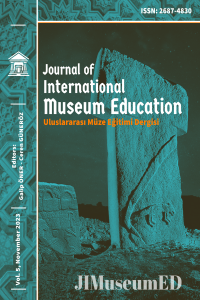Research Articles
Aim & Scope
The Journal of International Museum Education (JIMuseumED) is an online, academic journal that offers international, peer-reviewed, non-profit, free access to museum education at every educational level to publish research, review, critique, review, and translation articles. JIMuseumED, especially in international literature, including Turkey aims to develop museum education. JIMuseumED aims to be an important source of reference for researchers who are researching this area by collecting the works that are scattered especially in the fields of museum education, teaching in historical places, and out of school. Therefore, we invite researchers and authors from different disciplines to contribute to JIMuseumED. Our journal has all kinds of education-oriented museums, historical places, ruins, science centers, and so on. It accepts both qualitative and quantitative empirical research, review, and publication critiques.
The Journal of International Museum Education (JIMuseumED) is a JIMuseumED publishes articles on museum education. The scope of the journal includes:
1. Archeology, Ethnography, Science, etc. all kinds of museum studies in the context of the study,
2. Studies on the educational importance of Historical Sites, Science Centers,
3. Turkey and addressing the historical development of museum education work in the world,
4. Critical studies on books, textbooks, and journal articles on museum education,
5. Translation studies aiming to inform Turkish researchers about museum education in different countries.
Author Guidelines
JIMuseumED uses three publication templates, depending on the type of work you have. You can download the one related to your work:
Authors are required to fill in and upload the JIMuseumED Copyright Agreement Form on their work.
 The use of the APA 6 style created by the American Psychological Association is preferred in the "Journal of International Museum Education".
The use of the APA 6 style created by the American Psychological Association is preferred in the "Journal of International Museum Education".
You can find the short guide for APA 7 here.
APA Manual 7th edition: The most notable changes
1. The publisher's location is no longer included in the reference.
- Covey, S. R. (2013). The 7 habits of highly effective people: Powerful lessons in personal change. Simon & Schuster.
2. The in-text citation for works with three or more authors is now shortened right from the first citation. You only include the first author’s name and “et al.”.
- (Taylor et al., 2018)
3. Surnames and initials for up to 20 authors (instead of 7) should be provided in the reference list.
- Miller, T. C., Brown, M. J., Wilson, G. L., Evans, B. B., Kelly, R. S., Turner, S. T., Lewis, F., Lee, L. H., Cox, G., Harris, H. L., Martin, P., Gonzalez, W. L., Hughes, W., Carter, D., Campbell, C., Baker, A. B., Flores, T., Gray, W. E., Green, G., … Nelson, T. P. (2018).
4. DOIs are formatted the same as URLs. The label “DOI:” is no longer necessary.
- https://doi.org/10.1080/02626667.2018.1560449
5. URLs are no longer preceded by “Retrieved from,” unless a retrieval date is needed. The website name is included (unless it’s the same as the author), and web page titles are italicized.
- Walker, A. (2019, November 14). Germany avoids recession but growth remains weak. BBC News. https://www.bbc.com/news/business-50419127
6. For ebooks, the format, platform, or device (e.g. Kindle) is no longer included in the reference, and the publisher is included.
- Brück, M. (2009). Women in early British and Irish astronomy: Stars and satellites. Springer Nature. https:/doi.org/10.1007/978-90-481-2473-2
7. Clear guidelines are provided for including contributors other than authors and editors. For example, when citing a podcast episode, the host of the episode should be included; for a TV series episode, the writer and director of that episode are cited.
8. Dozens of examples are included for online source types such as podcast episodes, social media posts, and YouTube videos. The use of emojis and hashtags is also explained.
9. The singular “they” or “their” is endorsed as a gender-neutral pronoun.
- A researcher’s career depends on how often he or she is cited. (x)
A researcher’s career depends on how often they are cited. (+)
10. Instead of using adjectives as nouns to label groups of people, descriptive phrases are preferred.
- The poor (X)
People living in poverty (+)
11. Instead of broad categories, you should use exact age ranges that are more relevant and specific.
- People in the age range of 65 to 75 years old
12. Use double quotation marks instead of italics to refer to linguistic examples.
- APA endorses the use of the singular pronoun “they”
Reference:
Streefkerk, R. (2020, February). APA Manual 7th edition: The most notable changes. Scribbr. https://www.scribbr.com/apa-style/apa-seventh-edition-changes/
Basic Principle of Reference by APA Style
The APA style is usually based on the following format:
Author. (Year). Title. Publication Information.
How to Make Citation in APA Format?
In the International Journal of Museum Education, the use of the APA 7 style created by the American Psychological Association is preferred.
Templates and examples of different publication types in APA format are given below.
Manuscripts should be prepared according to the Journal Template.
Printed Book
Author's Surname, Initial. (Year of Publication). Book Title. Broadcasting Organization.
Creswell, J. W. (1994). Research design: Qualitative, quantitative, and mixed methods approaches. Sage.
Creswell, J. W. (2014). Research design: Qualitative, quantitative, and mixed methods approaches (4th ed.). Sage.
Karasar, N. (2017). Scientific research method: Concepts, principles, techniques (32 bs.). Nobel.
Edited Book
Author's Surname, Initial, & Author's Surname, Initial. (Eds.) (Year of Publication). Book Title. Broadcasting Organization.
Duncan, G. J. & Brooks-Gunn, J. (Eds.). (1997). Consequences of growing up poor. Russell Sage Foundation.
Printed Journal Article
Author's Surname, Initial. (Year of Publication). Article name. Journal Title, Volume (Issue), Page. Doi URL
Nevin, A. (1990). The changing of teacher education.The Journal of the Teacher Education Division for Exceptional Children, 13(3-4), 147-148.
Online Journal Article
Author's Surname, Initial. (Year of Publication). Article name. Journal Title, Volume (Issue), Page. DOI URL
Öner, G. & Öztürk, M. (2019). Science centers as out-of-school learning and teaching spaces: Experience of prospective social studies teachers. Eskisehir Osmangazi University Journal of Social Sciences, 20(Special Issue), 1109-1135. https://doi.org/10.17494/ogusbd.555135
Karadeniz, C. & Okvuran, A. (2014). One night at the museum: Museum education in Ankara Archeology Museum with students from Ankara University. Primary Education Online, 13(3), 865‐879.
Üztemur, S., Dinç, E. & Acun, İ. (2018). The effect of museum and historical space usage on social studies perceptions of 7th grade students in social studies education: An action research. Theoretical Journal of Educational Science, 11(1), p135-168.
Öner, G. & Çengelci-Köse, T. (2019). Opinions of prospective Social Studies teachers to gain value and skills in museums and historical places. Turkish History Education Journal, 8(1), 98-128.
Spelling Information Table:
| Paper Size | A4 Vertical |
| Top Margin | 1 cm |
| Bottom Margin | 2,5 cm |
| Left Margin | 2,5 cm |
| Right Margin | 2 cm |
| Font | Palatino Linotype |
| Font Size (Normal text) | 10 |
| Font Size (Footnote text) | 8 |
| Table-graphic | 10 |
| Line and Paragraph Spacing | First 0 pt in the paragraph, then 12 pt (0 pt before and after in tables and graphs). In main headings, the interval is 12 pt before and after. Line spacing Single. Hanging in bibliography and indent 0.63 cm, Alignment: Justify, spacing before and after 6 nk, Line spacing Odd. |
Translation Articles:
This section aims to evaluate the Turkish translations of important articles published in any language other than Turkish in the field of Museum Education and to share them with Turkish readers.
The following issues should be considered when applying for a translation article:
1. Obtaining translation and re-publication permission from the person or institution holding the copyright of the work.
2. Translating the entire article into Turkish.
3. Do not make any additions to the main text in the translation and make the necessary explanations and evaluations in the footnote section.
4. To submit the original text and permission letter along with the Turkish translation of the work.
Ethical Principles and Publication Policy
Ethical Responsibilities and Policies
- Manuscripts submitted to JIMuseumED must not be published in another journal or sent for publication. Papers presented previously in a congress - provided that the whole study has not been published in the congress book - and the articles compiled from the postgraduate thesis study should be indicated at the end of the page with a footnote containing the necessary information. Any responsibility for the published works belongs to the author (s)
- The studies reaching the journal are pre-examined by the editorial board in terms of the scope of the journal and compliance with the writing rules. As a result of this examination, the studies deemed appropriate are submitted to the evaluation of two referees. The referees are given 20 days to evaluate, and the referee who has not returned within this period is granted a one-time, 7-day grace period. If he does not evaluate work during this time, a new referee is appointed. For the candidate's work to be published in the journal, both referees must obtain a positive opinion. If one of the referees gives a positive opinion and the other gives a negative opinion, the study is submitted to the final opinion of the Editor or a third referee. The author (s) are obliged to make the corrections suggested by the referee (s) (if any). Studies that receive the printable report from the referee (s) enter the "Regulation" process. During this process, iThenticate plagiarism screening is carried out. As a result of the screening, the studies, which are 20% and below (except for the bibliography), are sent to the author with the report and asked to give the final form to the study. Works with 21% and above can be corrected or rejected by the Editor. The final shape of the studies is put on the string. Before the publication, the work is sent to the author for final control and approval. Approved work can be published from the front view without waiting for the number of time (research studies only) or can wait for the publication date of the new issue. Changes to published works can be made by contacting the Editor no later than 4 days after the relevant volume is published.
- The referee (s) do not have any information about the author (s) and the author (s) does not have any information about the referee (s). The responsibility of ensuring confidentiality in this matter belongs to the editors of the journal.

Ethical Responsibilities of Authors
- All authors submitting studies to the journal are expected to act within the framework of universal ethical principles (scientific accuracy, reliability of data and analysis, honesty, impartiality, and social responsibility, etc.).
- The works submitted by the author (s) are expected to be original and up-to-date. The author (s) are required to accurately and accurately cite and/or cite all the works they use (Apa 7 version).
- It means that the person or persons who are included as authors in a scientific study make an important contribution to the study and have full responsibility for the content of the study. Otherwise, people who do not contribute to the study should not be included as authors.
- Raw data regarding the articles can be requested from the author (s) within the framework of the evaluation processes. Author (s) are responsible for submitting the requested data and information to the Editorial Board.
- If the author (s) notices a mistake or error related to his published, evaluation phase, he/she has a responsibility to inform the editor of the journal, to correct his work, or to cooperate with the editor in the process of withdrawal.
- The author (s) should not have their work in more than one journal at the same time and should not be published in another journal.
- For a study whose evaluation process has started, an operation such as adding or removing authors, changing the author's order cannot be requested.
Author Rights
- They may determine the referees that they wish not to be sent for their conflicts of interest and/or ethical reasons by notifying the Editors.
- They can appeal to referee reports and editorial decisions.
- Due to the material errors that occur during the printing process, they may request erratum from the editors for the problematic locations in the first issue to be published or for the information errors arising from it.
Retractions and Malpractices Policy
Authors may withdraw their work while it is in the evaluation process.
If errors are detected in the published works, the Author may contact the editor and request corrections within 4 days after the publication. However, if 5 days or more have passed since the publication process, the author may request an error notification in the next issue. Editors are responsible for publishing this notice. The correction process is also indicated via Crossmark.
CrossMark Policy
Crossmark is a unique initiative from CrossRef to facilitate a standard way for readers to locate the authoritative version of a document. JIMuseumED maintains the Crossmark icon with a commitment to maintain the updated published content and alert readers whenever any change occurs in the published content. JIMuseumED understands the significance of the integrity and completeness of the scholarly record and attaches the highest importance to maintaining trust in the authority of its electronic archive. The Crossmark icon will be present on pdf versions of the article. When a reader clicks on the icon, he/she gets information about the current status of the published content and any information on additional publication record of that manuscript.
Authors regarding the evaluation result in JIMuseumED can use their appeals to jimuseumed@gmail.com e-mail addresses with their justifications and scientific grounds. Appeals are evaluated by the Editorial Board and feedback is provided to the authors. If the appeals are found positive, the Editorial Board may ensure that the study is re-evaluated with new referees.
Ethical Responsibilities of Referees
- The works sent to JIMuseumED are sent anonymously to at least two referees in the relevant field. In the case of positive and negative opinions about the article in the referee evaluations, the opinion of the editor or a third referee is taken.
- The double-blind review process has been adopted at the JIMuseumED, the author and the referee do not know each other's identity. In this context, the referees evaluating work at JIMuseumED are expected to have the following ethical responsibilities:
- To examine the publishing principles of JIMuseumED,
- Accepting only to evaluate studies related to the field of expertise. Not to accept the evaluation only to have an idea about the subject of the article, although there is no specialization,
- Refusing to evaluate when they realize that they cannot be neutral while making the evaluation,
- To complete the evaluation process within a certain time frame,
- To evaluate within the framework of impartiality and confidentiality,
- When they encounter a situation such as a conflict of interest, refusing to make an evaluation, and notifying this situation the editor,
- To inform the editor when they find that the article they evaluated is sent to another journal at the same time,
- Making assessments in constructive and kind language. Not to make personal comments such as hostility, insult, and slander,
- Paying attention that the evaluations are related to the content of the article. To be inclusive and sensitive about the fact that factors such as belief, sect, race, gender, political thought do not affect the evaluation process.
JIMuseumED requests and encourages authors involved in the evaluation process of submitted studies to declare existing or potential conflicts of interest, including financial, institutional, and individual relationships, that may cause potential conflicts of interest or bias. Any financial etc. taken for a study. supports must be declared to the Editorial Board. Any existing or potential conflict of interest situations related to authors, referees, and editors are resolved within the framework of COPE guidelines.

Plagiarism Screening

License Policy and Copyright
Metadata and full texts of all articles published in JIMuseumED are stored and presented in .pdf format on ULAKBİM servers via TUBITAK Dergipark Database (https://dergipark.org.tr/en/pub/jimuseumed/archive).

Disclaimer
Privacy Statement
All personal information such as telephone, address, etc. requested when sending work to JIMuseumED will be used only when deemed necessary by the Editors to operate a healthy process. We declare that this information will not be used for other purposes and will not be shared with other people.
Unethical Behaviour
If you encounter an unethical situation other than the ethical responsibilities mentioned in the Ethical Principles and Publication Policy section of JIMuseumED, please report it to jimuseumed@gmail.com via e-mail.
Publishing Fee
JIMuseumED is a free journal. It does not charge any fee from the author(s) at any stage (sending, processing, and publishing).
Price Policy
JIMuseumED is a free journal. It does not charge any fee from the author(s) at any stage (sending, processing, and publishing).

